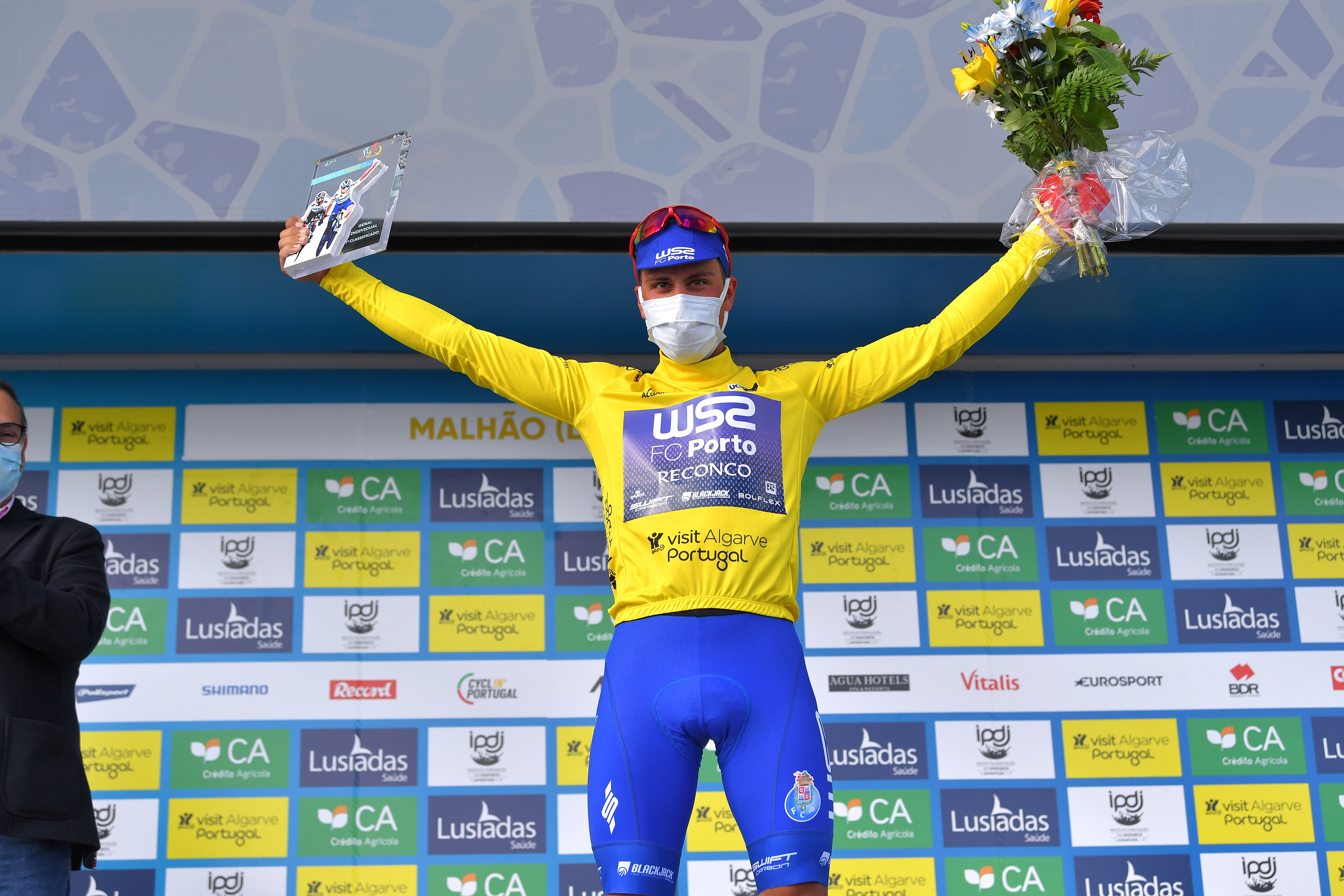Seven Portuguese riders banned over doping offences
João Rodrigues, the winner of the 2021 Volta ao Algarve, receives a seven-year suspension


Seven Portuguese riders, including three former winners of the Volta a Portugal, have been banned for doping offences. The longest suspension was reserved for João Rodrigues, who won the 2021 Volta ao Algarve, who has been banned for seven years.
The 27-year-old has received a four-year ban from the UCI for anomalies in his biological passport and an additional three years for a “possession of a banned method” from the Portuguese doping authorities.
It is unclear how it will impact his previous results; Rodrigues finished ahead of Ineos Grenadiers' Ethan Hayter at Algarve last year.
The Portuguese rider finished second behind the Briton on two stages on his way to overall victory at the 2021 race; he had won the Volta a Portugal in 2019, winning two stages in that edition.
The other riders banned include Rui Vinhas, the winner of the Volta a Portugal in 2016, Ricardo Mestre, the winner in 2011, Ricardo Vilela, Daniel Mestre, José Neves, and Samuel Caldeira, who were all suspended for three years for possession of banned products and methods.
Vinhas and Daniel Mestre were sanctioned for possession of betamethasone, while Neves, Ricardo Mestre, Caldeira, and Vilela were caught with human growth hormones and other products, Portugese officials said.
All seven raced for the Continental team W52-FC Porto, which saw its licence suspended by the UCI this summer, after a string of doping cases among teams based in Portugal.
The latest race content, interviews, features, reviews and expert buying guides, direct to your inbox!
The sanction was imposed in response to information received by the UCI from the Portuguese Anti-Doping Authority, which is conducting the doping investigation. Consequently, W52-FC Porto could not compete in races, and missed the Volta a Portugal next month - a race the team had won every year since 2013.
All seven of the sanctioned riders confessed in order to receive reduced bans, according to reports in Portugal. There are ongoing investigations into three of the team's riders, who reportedly did not "confess": Joni Brandão, José Gonçalves and Jorge Magalhães, as well as four members of the team's staff.
For 2023, the Portuguese cycling federation confirmed it will extend the application of the biological passport to all registered teams, including the continental-level teams that are not required to operate under the passport system.

Adam is Cycling Weekly’s news editor – his greatest love is road racing but as long as he is cycling, he's happy. Before joining CW in 2021 he spent two years writing for Procycling. He's usually out and about on the roads of Bristol and its surrounds.
Before cycling took over his professional life, he covered ecclesiastical matters at the world’s largest Anglican newspaper and politics at Business Insider. Don't ask how that is related to riding bikes.